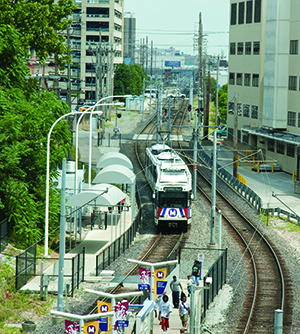
Transit stops close to home and workplace incentives are associated with higher likelihood that commuters will choose public transportation, according to research from the Brown School at Washington University in St. Louis and Washington University School of Medicine in St. Louis.
Investigators interviewed 1,338 residents of four metropolitan areas in Missouri about their commuting habits. As previous studies had suggested, they found that nearly 90 percent drove to work, while 5 percent used public transportation and 6 percent walked or cycled.
Having transit stops within 10-15 minutes’ walking distance from home, and workplace incentives such as discounts for public transit were associated with its use, the study found. Having free or low-cost recreation facilities and places to lock bikes around worksites made it more likely that workers walked or cycled to their jobs.
“While changing the physical environment may be challenging, worksite policies such as incentives and safe bike storage are relatively easy and inexpensive to implement,” said lead author Lin Yang, PhD, postdoctoral research associate at the Division of Public Health Sciences at the School of Medicine.
The results were published in March in the Journal of Transport & Health.

“Most public transit stops are not directly located at people’s home or work, so they get physical activity by walking out of the house to the bus stop, and then from the bus stop to work,” said study co-author Aaron Hipp, PhD, assistant professor at the Brown School.
“I know that it takes me eight minutes to briskly walk from my office to the Metrolink stop,” Hipp said. “I do this twice a day when I commute. My walk home is more like three minutes. So round trip, I am getting at least 22 minutes of activity I would not be by driving a personal car.”
Other authors on the study were Deepti Adlakha, a PhD-candidate at the Brown School; Christine Marx, project coordinator at the Division of Public Health Sciences; Rachel Tabak, PhD, research assistant professor at the Brown School; and Ross Brownson, PhD, the Bernard Becker Professor and PRC co-director.